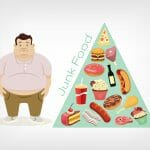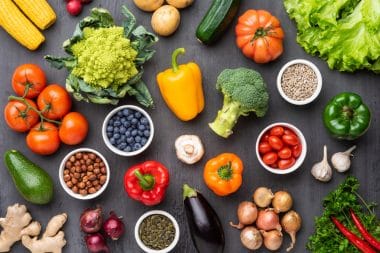In recent years a few studies have suggested that if we eat a well-balanced diet we many not need to take a multi-vitamin. While this sounds like a great way to stay healthy, it is really possible? With busy lives, crazy schedules and the constant need to be on the go, our diets are increasingly missing some of the key nutrients that we need to perform at our very best. Here we will look into the important question – can we get all the nutrients we need from the foods we eat?
What Do We Need on a Daily Basis?
The US Food and Drug Administration (FDA) sets forth criteria every few years on what our diets should include each day. Their guidelines include two sets of reference values for reporting nutrients in nutrition labeling: Â Daily Reference Values (DRVs) and Reference Daily Intakes (RDIs). These values help us understand the amount of each nutrient in what we eat so we can compare nutritional values of different foods.
Daily Reference Values are the recommended daily intake of energy-containing macronutrients, including carbohydrates, cholesterol, fat, fiber, saturated fatty acids, potassium, protein, and sodium.
Reference Daily Intakes  is the recommended daily intake level of each nutrient that is considered to be sufficient to meet the requirements of 97–98% of healthy individuals in each demographic.
According to the FDA’s most recent list there are 33 micro- and macronutrients that are key in keeping us at peak health.
What Do We Need, But Not Every Day?
Our bodies have a unique ability to store some of what we need to be used later. With the exception of essential amino acids (which cannot be stored in the body), we can store things like fat or calories for a short period of time and use them as we need them. The problem with this, is many times we consume way too much fat, calories, sugar and other things we should limit. Then, instead of using them later, they get stored as fat cells in our body. The best way to eat is to pay attention to these important guidelines and focus on getting them every day.
Can We Get Both From Our Diet?
In order to get the proper DRV and RDI of each of the 33 vitamins, minerals, protein and calories we would need to work very hard to stay on top of each. Most of us are well aware that we need the big vitamins like A, C, D and E. But do you know that you also need 10 milligrams of Pantothenic acid, 1,000 milligrams of Phosphorus and 15 milligrams of Zinc each day to stay on top of our health? If you pay close attention to everything that goes into your body it is possible to meet your nutritional needs each day. However, most of us live in the real world where this is nearly impossible. Whether it is an essential amino acid that we need to consume each day to function properly or one of the vitamins or minerals we can store in our cells, it can be a serious challenge to get what we need solely from our diets.
How Much Would We Need to Eat To Meet Our Needs?
In that ideal world, let’s say that we make it our mission to consume each of our dietary requirements without taking any supplements. All of the required nutrients are available through various foods so it is certainly possible. Here’s the catch – what Americans eat, even the healthy ones, are missing some key nutrients. The diet that you would need to check all the boxes would mean that all meals would have to be prepared at home. You would need to buy organic, non-GMO ingredients of all shapes, sizes and colors. A combination of meat, dairy, produce, legumes, grains, beans and several others would be a must every day.
So, Can I Really Get Everything I Need From My Diet?
National Health and Nutrition Examination Survey (NHANES) was conducted between 2007-2010 and looked at the diets of more than 16,000 Americans four and older. What they found was that nutrient intakes fell short of the Estimated Average Requirements (EAR) in 94 percent of Americans for vitamin D, 88 percent for vitamin E, 43 percent for vitamin A, 39 percent for vitamin C, 44 percent for calcium, and 52 percent for magnesium. Â With so many people falling short the American Nutrient Gap continues to widen.
While it is theoretically possible to fulfill all of your nutritional needs through your diet, it would require a great deal of work each and every day. While we applaud those few who manage to complete this challenge, we also know that it isn’t possible for everyone.
Am I Failing My Health If I Fall Short?
Staying on top of your health means that you have to pay attention to what you eat, make sure to get plenty of exercise, drink water, manage stress, get enough sleep and manage our prescribed medications. This sounds like a full time job. When you add in your career, family, friends and other responsibilities, it gets even tougher.
So, what can you do to make sure that you don’t succumb to the nutrient gap? In addition to eating a well-balanced, nutrient-rich diet you can add a high quality, balance multi-vitamin to plug up the dietary holes that are very difficult to fill. This simple step will help make sure that you stay on top of your health.
Can we get all of our nutrition from diet alone? #HealthStatus
Here’s the catch – what Americans eat, even the healthy ones, are missing some key nutrients.










Reply